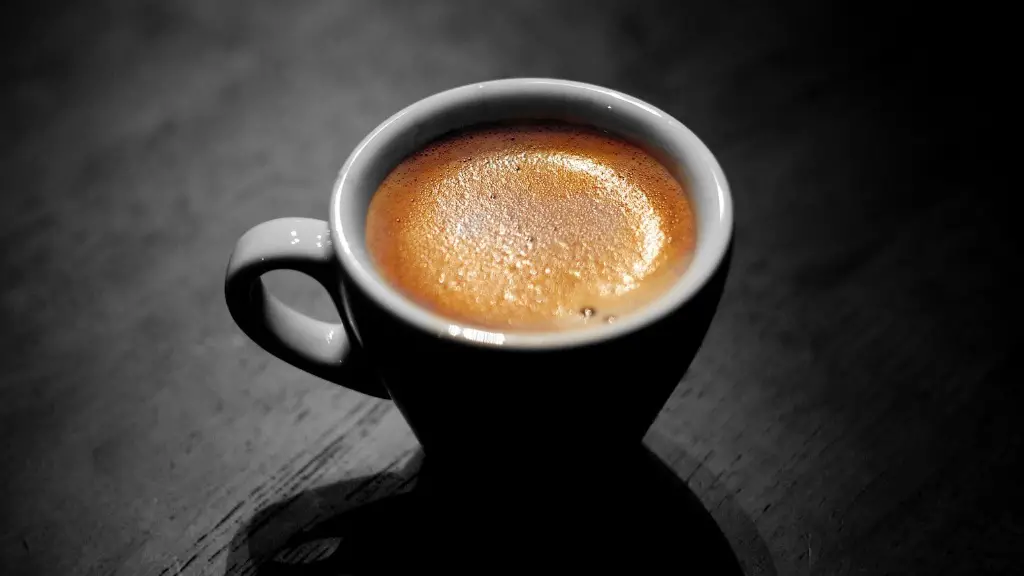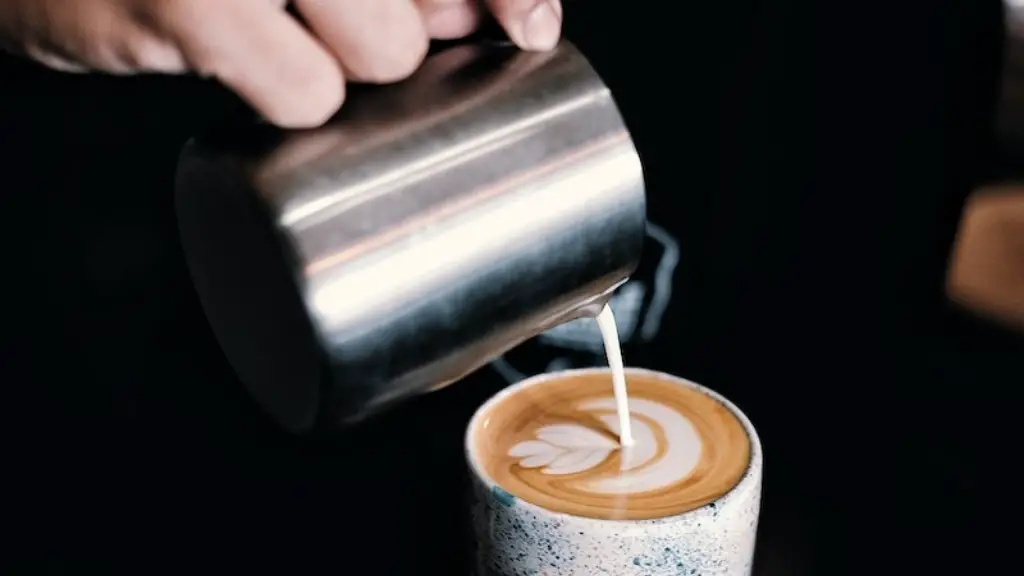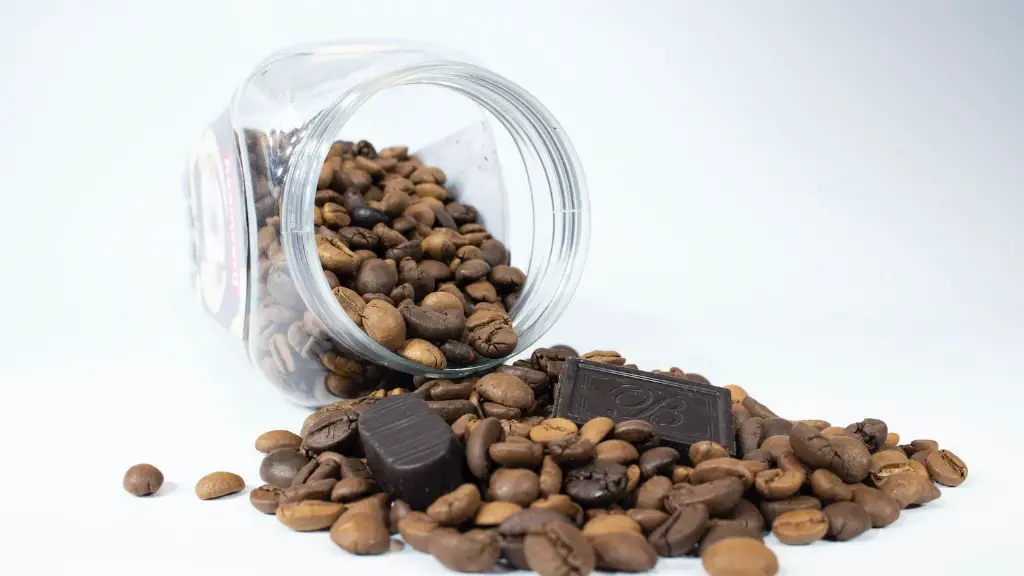Recently, the 16:8 Diet, also known as intermittent fasting, has been gaining a lot of attention as an effective weight-loss solution. The diet involves eating only during an 8-hour window and fasting for the remaining 16 hours of the day, and some people wonder if they can still drink coffee while following this diet plan. The answer is yes, but it is important to consider the possible effects coffee can have on the diet’s results.
The 16:8 Diet focuses on time-restricted eating so that the body will enter a fasting state for longer periods of time. “Fasting initiates a metabolic switch from burning carbs to burning fat, so the body enters a state of ketosis which can lead to some amazing health benefits,” explains nutritionist Dr. Rupali Datta.
Coffee can fit into the 16:8 Diet, as it does not contain any calories, although most people prefer to drink their coffee with some kind of sugar and cream, which adds extra calories. However, there are some considerations to be aware of when drinking coffee on the 16:8 Diet.
Drinking coffee can stimulate the body’s metabolism and make a person feel more energized, which can help to fuel the body through the fasting period. However, too much coffee can overstimulate the metabolism, making it harder to enter a fasting state, which can impede the results of the diet.
In addition, caffeine can cause dehydration, which is not ideal while fasting. “It is important to stay hydrated while fasting and drinking caffeinated beverages like coffee can cause dehydration,” says nutritionist Dr. Rupali Datta.
Finally, some people may find that drinking coffee during their fasting period can make it harder to last until the end and lead to binge-eating at their meal times. “If you find that coffee leaves you feeling hungry and unable to make it until your next meal, it may be best to cut it out,” says Dr. Dutta.
Benefits of Coffee in 16 8 Diet
Despite the potential drawbacks, coffee also has some potential benefits when it comes to following the 16:8 Diet. A 2018 study showed that drinking coffee can help to suppress appetite and further reduce caloric intake, which can be helpful if a person is having trouble limiting their eating to the 8-hour window.
In addition, coffee has a number of health benefits, such as improved cognitive function and increased metabolism, which can help people reach their weight-loss goals faster. Many people also find that drinking coffee helps them stay focused and energized throughout the day, which can be beneficial for maintaining a healthy lifestyle.
Finding a Balance
For those who still want to drink coffee while following the 16:8 Diet, it is important to find the right balance. It is generally best to avoid adding cream and sugar, as these can increase calorie intake, which can make it harder to lose weight.
It is also important to make sure that coffee isn’t over-consumed and is only drunk during the 8-hour window. Drinking too much coffee within this window can make it harder to last through the fasting period and may lead to binge eating.
Conclusion
In conclusion, it is possible to drink coffee while following the 16:8 Diet, although caution should be taken. Finding the right balance between coffee consumption and fasting is key to achieving the desired results from the diet.
Various Types of Fasting
Fasting is nothing new; for centuries, people across many cultures have practiced various forms of fasting for spiritual, health, and other reasons. One popular form of fasting is the 5:2 Diet, which involves eating normally for 5 days and fasting for 2 non-consecutive days. While different types of fasting can be effective, research shows that intermittent fasting, like the 16:8 Diet, can be especially beneficial.
The 16:8 Diet has been shown to have a number of health benefits, including improved mental clarity, increased energy, and better concentration. In addition, this type of fasting can help to reduce fat mass, reduce inflammation, and improve insulin sensitivity. It has also been shown to reduce levels of bad cholesterol and increase levels of good cholesterol in the body.
Finally, intermittent fasting can have a positive effect on the body’s growth hormone production, which can help to enhance muscle building and boost the body’s ability to burn fat. This type of fasting can also help to improve sleep quality and reduce stress levels, resulting in a healthier, more balanced lifestyle.
Coffee and Calorie Restriction
In addition to intermittent fasting, the 16:8 Diet also involves calorie restriction, which can help to promote weight loss. This can be done in a number of ways, such as by reducing portion sizes, eliminating certain foods, and eating fewer meals throughout the day.
Drinking coffee can also be beneficial for calorie restriction, as it does not contain any calories and can reduce a person’s appetite. However, it is important to remember that any kind of sugar, milk, or other additives to the coffee can add calories, which can make it more difficult to reach the desired calorie intake.
In addition, drinking coffee can help to suppress the appetite, making it easier to eat fewer calories throughout the day. This can help to reduce cravings and make it easier to stick to the diet’s meal plan.
Headache and Caffeine Withdrawal
For those who are used to drinking coffee every day, it is important to be aware that cutting down or avoiding coffee for a period of time can cause some adverse effects. People can start to experience headaches, fatigue, and irritability when they stop drinking coffee, even if they are only following the diet for a short period of time.
It is important to drink enough water throughout the 16:8 Diet, as this can help to reduce the effects of caffeine withdrawal. In addition, it is a good idea to keep track of the amount of coffee being consumed, as too much caffeine can have a negative impact on the body.
The Bottom Line
Ultimately, it is possible to drink coffee while on the 16:8 Diet, but it is important to find the right balance between coffee consumption and fasting in order to achieve the best results. It is also important to note that reducing or eliminating coffee consumption can cause some side effects, so it is a good idea to drink plenty of water and be prepared for any potential withdrawal symptoms.





